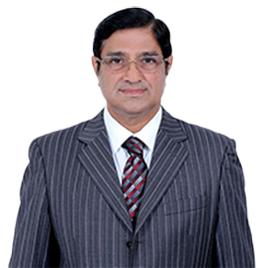An echocardiogram or an Echo is a diagnostic procedure to check the heart muscles and their activity. An exercise stress echocardiogram is a specialized echocardiogram where the heart is images when it is under stress induced because of exercise. An echocardiogram utilizes sound waves to study the heart and its activity to diagnose any heart ailment and help in further treatment planning.
Who performs an exercise stress echocardiogram ?
A cardiologist performs an Exercise Stress Echocardiogram along with technicians who are trained for the same. This test is usually performed in an Echo laboratory or a cardiology laboratory.
When is an exercise stress echocardiogram advised ?
An exercise stress echocardiogram is primarily advised by your cardiologist when you’re either having certain symptoms or if you are at an increased risk of developing a cardiac disease. An Exercise Stress Echocardiogram can also be advised to check to check the functioning of your heart and its valves. Below mentioned are the few conditions when a exercise stress echocardiogram is advised.
- Breathlessness or shortness of breath
- Chest pain and discomfort
- Abnormal and irregular heartbeat
- Fatigue on slight exertion
- History of cardiac disease/coronary artery disease
- Family history of cardiac disease
- Heart attack
- Smoking habits
- Obesity
- To evaluate the suitability of a cardiac person for surgery
A lot of other lesser common conditions can make you eligible for an Exercise Stress Echocardiogram, so it is advised that you have a thorough consultation with your cardiologist to understand the procedure and its indications.
How do you prepare for an exercise stress echocardiogram ?
An Exercise Stress Echocardiogram is advised by a cardiologist after your complete physical and clinical examination and other routine blood investigations. You will be asked to reveal your complete medical history and medication history as some medicines will be reviewed before you are posted for the Exercise Stress Echocardiogram. You will be asked to avoid eating or drinking at-least 4-6 hours before the procedure. You will also be asked to wear loose clothing and comfortable footwear for the procedure. It is important to inform your cardiologist if you are pregnant as the test might not be advised during pregnancy.
What happens during an exercise stress echocardiogram ?
You will be asked to change into hospital gown and remove any pieces of jewelry. Initially a normal echocardiogram is performed by your cardiologist by making you lie on your back on an examination table, with a slight tilt towards your left side. The cardiologist will place electrodes on your chest to monitor your heartrate during the test. A blood pressure cuff is used to monitor the blood pressure during the test. After application of a gel on your chest, a transducer (the device which sends sound waves) is moved on the chest near to image the pictures of the moving heart. The transducer sends soundwaves which are reflected to it from the heart and are captured on a connected monitor in the form of images.
Once a normal echocardiogram is performed, a stress echocardiogram is performed by making you walk and run on a treadmill or a bicycle. The electrodes are attached your chest to monitor your heartrate and the transducer is used to send sound waves to image your heart. The walking on the treadmill is started at a minimal speed for 2 minutes and the speed is gradually increased. The time of the test is determined individually, or the test is immediately stopped if you experience discomfort and breathlessness.
Newer advances in cardiac imaging include Doppler echocardiogram (imaging of the blood vessels and the blood flow), color Doppler, 2-D and 3-D echocardiogram to image the heart under stress conditions.
What are the risks and complications of exercise stress echocardiogram ?
The Exercise Stress Echocardiogram is a safe procedure as it non-invasive and it does not use any ionizing radiation. But, the test induces stress or workload on the heart which may occasionally lead to abnormal heart beat and rhythm, breathlessness, fatigue, chest pain, high blood pressure, feeling of light headedness or fainting and rarely a heart attack.
Disclaimer: The content provided here is meant for general informational purposes only and hence SHOULD NOT be relied upon as a substitute for sound professional medical advice, care or evaluation by a qualified doctor/physician or other relevantly qualified healthcare provider.



